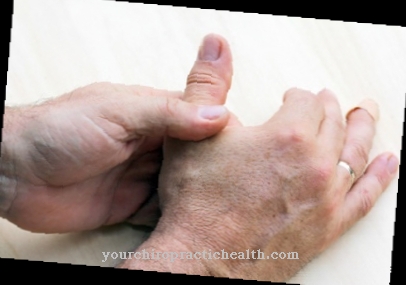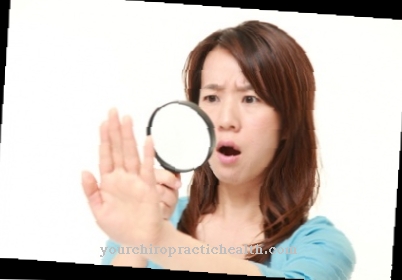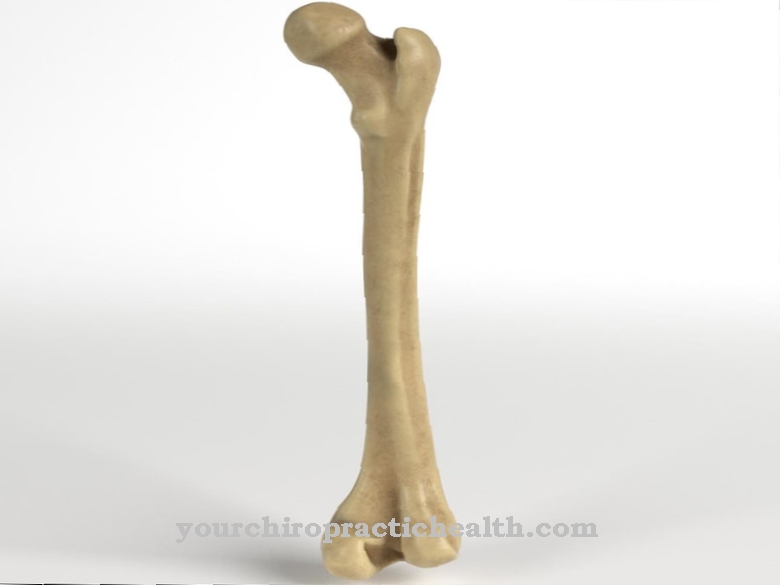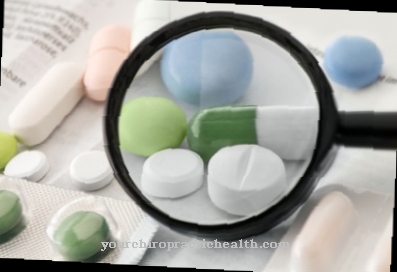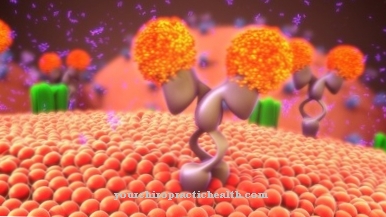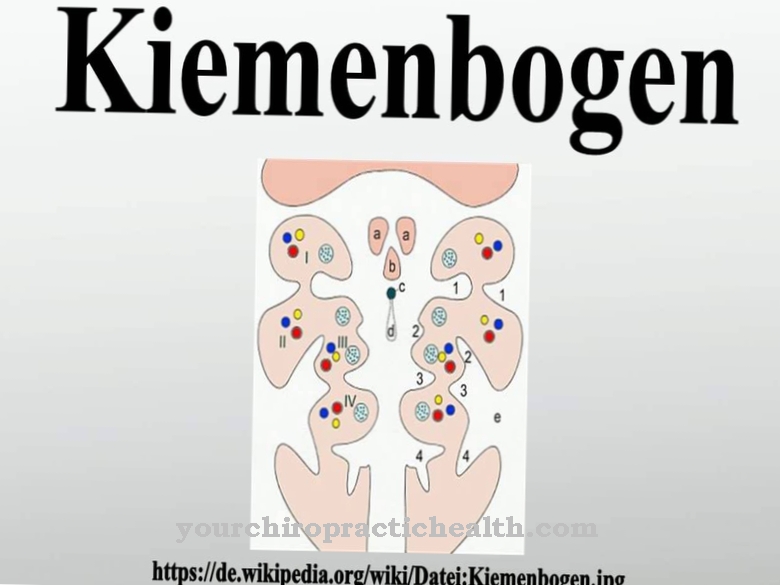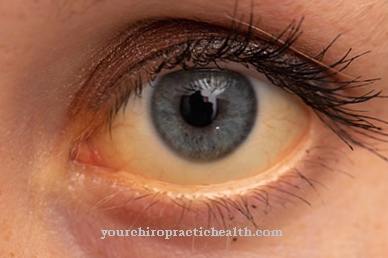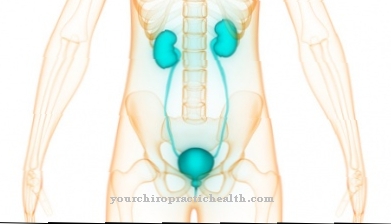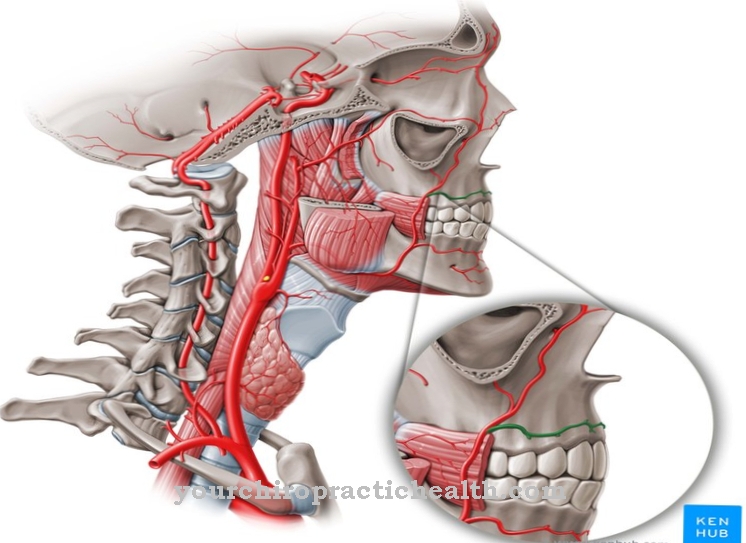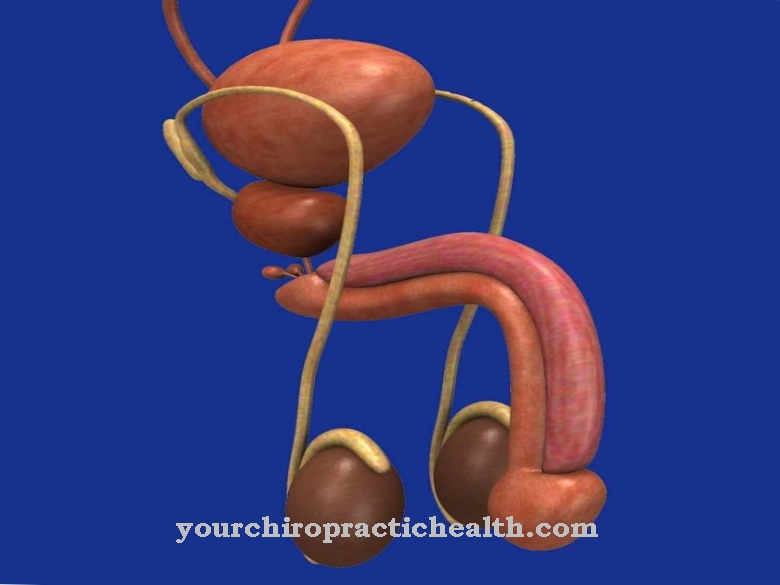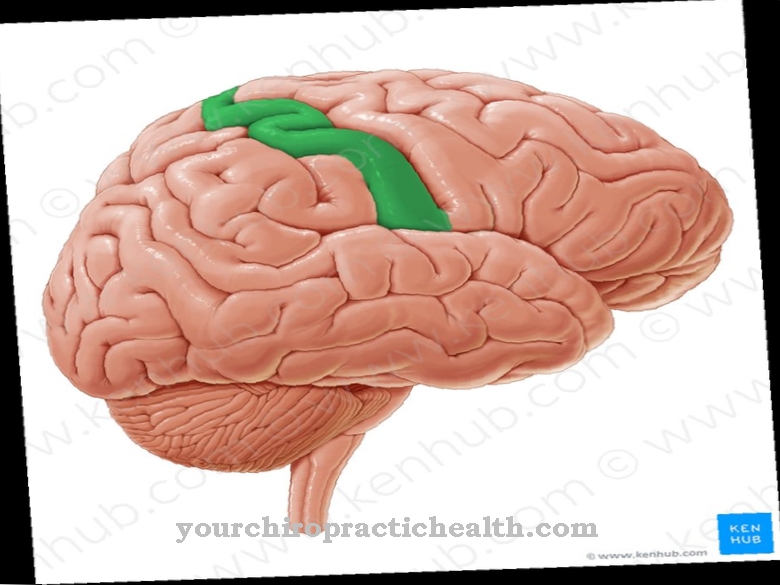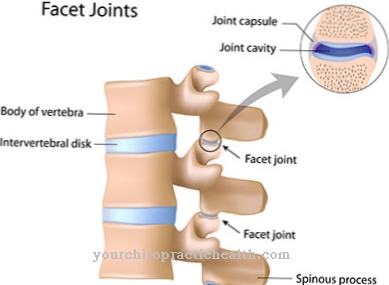At the Jackson Syndrome it is a brainstem or alternans syndrome with crossed paralysis symptoms, also known as ventral paramedian oblongata syndrome is known. The cause of the phenomena is a stroke in the flow area of the vertebral artery. Treatment is symptomatic and supportive and consists mainly of physiotherapeutic and speech therapy measures.
What is Jackson Syndrome?

© Sebastian Kaulitzki - stock.adobe.com
Damage to the brain stem causes so-called alternans syndromes. These syndromes are characterized by crossed symptoms of paralysis and occur with unilateral lesions of the brainstem structures. The clinical pictures fall into the group of brain stem syndromes.
Characteristic is the ipsilateral failure of cranial nerves and the hemiparesis of the opposite half of the body, which is associated with sensory disorders. Depending on the exact location of the damage, there are different types of brainstem or alternans syndromes. That is a subtype Jackson Syndromeassociated with unilateral damage to the pyramidal tract and the nucleus nervi hypoglossi.
The damaged nerve core lies in the ventral part of the medulla oblongata, which is why Jackson's syndrome is also known as ventral paramedian oblongata syndrome referred to as. Jackson syndrome is marked by tongue paralysis on the side of the brainstem lesion and hemiplegia on the opposite side. The name Jackson syndrome goes back to the English neurologist J. H. Jackson, who first described the syndrome in the 19th century and named a bleeding in the medial medulla oblongata as the cause.
causes
In most cases, Jackson syndrome is the result of a stroke. This stroke usually occurs within the flow area of the vertebral artery. Due to the proximity to the pyramidal tract, this motor structure is affected, resulting in hemiparesis on the opposite side of the body.
The two sides of the brain supply the opposite half of the body from the intersection of the pyramids. The cranial nerve structures above the pyramidal tract junction are controlled by the hemispheres of the brain on the side that supply them. For this reason, the stroke in Jackson syndrome causes paralysis of the extremities of each other, but at the same time causes paralysis of the cranial nerve structures on the lesion side.
One of these nerves is the nucleus nervi hypoglossi, which is located in the ventral part of the medulla oblongata and supplies the tongue with its branches. In Jackson's syndrome, the cause of the lesion is always a local microangiopathic change or an embolic occlusion in the end section of the vertebral artery. Both events cause ischemia, which is to be understood as the primary cause of the crossed paralysis symptoms.
Symptoms, ailments & signs
Like all other alternans syndromes, Jackson syndrome manifests itself clinically in the form of crossed signs of paralysis. Ipsilateral to the causative brainstem lesion, symptoms of paralysis of the tongue occur, which is motor-innervated by the hypoglossal nerve and leads to the hypoglossal nucleus.
On the body side of the brain lesion opposite the hemiparesis, hemiplegia occurs with sensory disturbances, which can be traced back to a pyramidal tract damage above the pyramid crossing. The sensory disorders can manifest themselves in Jackson syndrome in different ways. In addition to numbness, tingling or burning may occur.
Oversensitivities are also conceivable, but not the rule. The severity of the hemiplegia depends on the extent of the brain damage. Due to tongue paralysis, those affected sometimes have difficulty eating and drinking. The pronunciation is also more or less alienated because of the one-sided paralysis of the tongue.
Diagnosis & course of disease
The neurologist makes the first suspected diagnosis of Jackson syndrome, because of the characteristic symptoms, usually via the clinical picture. A differential diagnostic differentiation from other brain stem syndromes is nevertheless necessary in the context of the diagnosis.
A significantly more common brainstem syndrome after brain damage in the region of the medial medulla oblongata is Dejerine-Spiller syndrome, which deserves the greatest attention in differential diagnosis. Jackson syndrome is essentially a reduced sub-form of Dejerine-Spiller syndrome.
In addition to the symptoms of Jackson's syndrome, the full Dejerine-Spiller syndrome also includes a significant sensory disorder on the side of hemiplegia. The pain and temperature sensation of the patient is retained because of the lesion within the posterior cord tract. In comparison, patients with Jackson syndrome have a relatively favorable prognosis.
Complications
Jackson syndrome causes most patients to suffer from severe paralysis and other disorders of sensitivity that usually affect the entire body. This results in severe restrictions on movement, which lead to a reduced quality of life. In most cases, these restrictions also lead to psychological complaints or depression.
It is not uncommon for the patients to then rely on the help of other people in their everyday lives. Furthermore, there is the typical tingling sensation and numbness in the affected areas. In some cases, hypersensitivity also occurs. Paralysis of the tongue and mouth, in particular, can lead to difficulties in eating and hydrating, so that the person concerned loses weight or suffers from dehydration.
As a rule, Jackson syndrome cannot be treated causally. For this reason, only symptomatic treatment takes place. However, this does not always lead to a positive course of the disease. The life expectancy can be limited by the causal disease. With the help of various therapies, however, some symptoms can be limited and treated.
When should you go to the doctor?
In a large number of cases, patients who have suffered a stroke suffer from sequelae and lifelong health problems. Jackson syndrome is one of the effects of the life threatening condition and should be treated therapeutically. A doctor should be notified in the event of discomfort in the mouth area. Paralysis of the tongue or a loss of control over the tongue are considered worrying and should be examined by a doctor.
If one-sided symptoms of paralysis occur, disturbances in feeling perception set in, or if limitations in sensitivity are noticed, the observations should be discussed with a doctor. A tingling sensation on the skin or burning sensations are among the clues that suggest Jackson syndrome. In order to be able to initiate suitable therapeutic measures, a doctor should be consulted. Restrictions in mobility, changes in speech and disturbances in eating must be presented to a doctor.
If the impairment leads to weight loss or a reduced supply of fluids, there is a risk of an undersupply of the organism. In order not to trigger another life-threatening situation, a doctor must be alerted in good time. In severe cases, dehydration occurs without medical intervention and thus an increased risk of premature death. If psychological complaints occur in addition to the physical symptoms, a doctor or therapist should be contacted.
Treatment & Therapy
A causal treatment is excluded for patients with Jackson syndrome. The brain damage has taken place and cannot be resolved causally. The human brain is not able to regenerate completely after damage because its tissue consists of highly specialized nerve cells.
While other tissues of the body can partially achieve complete regeneration by absorbing new cells, this is impossible for the brain tissue. Although the brain defect cannot be reversed, patients with Jackson syndrome can still recover from their symptoms. Physiotherapy and speech therapy play a role in this recovery.
These supportive treatment measures consistently demand from the patient the functions that should actually take place in the damaged brain areas. Through this training, nerve cells in the immediate vicinity of the brain lesion are stimulated to take over the functions of the defective region.
At least an improvement in the symptoms can therefore be expected. In many cases, patients even overcome the failure symptoms entirely. A reduction in stroke risk factors should be aimed for so that no further brain damage is to be expected in the future.
Outlook & forecast
The prognosis for Jackson syndrome is poor. The syndrome develops as a result of a stroke. This resulted in irreversible damage to the brain. For this reason, symptomatic treatment of the individual complaints is necessary. The aim of the therapy is to improve the existing quality of life. A cure is almost impossible. In targeted training exercises, exercises are carried out that are intended to alleviate the symptoms. However, despite all efforts, paralysis cannot be completely regenerated. In many cases the patient is dependent on the daily help of others.
The disease often leads to sequelae. Since the emotional and psychological stress is very high due to the existing complaints, it can lead to a mental illness. A large number of patients experience depressive states. These can be temporary or permanent in nature. A severe loss of wellbeing is also often documented. Everyday tasks can no longer be managed entirely by the patient himself. The usual processes need to be restructured.
In the case of paralysis of the tongue, a sufficient supply of liquid is necessary, otherwise a life-threatening condition will develop. People who have had a stroke and who developed Jackson syndrome may have a reduced life expectancy.
prevention
Jackson syndrome can be prevented by the same measures that apply to stroke prevention. In addition to giving up tobacco consumption, reducing excess weight, eating a healthy diet and getting enough exercise are preventative measures. The reduction of stress can also be counted among the preventive measures in the broadest sense.
Aftercare
In most cases, those affected have no or only a few options and measures for direct follow-up care in Jackson syndrome. The disease must first and foremost be recognized and treated by a doctor quickly and, above all, early so that there are no further complications or other complaints.
In Jackson syndrome, the focus is therefore on the early detection and treatment of the disease so that a further worsening of the symptoms can be prevented. A medical professional should be contacted at the first symptoms of the syndrome. In most cases, the syndrome is treated by taking various medications. The person affected should always pay attention to the correct dosage and, above all, to taking the medication regularly.
Consult a doctor first if anything is unclear or if you have any questions. Physiotherapy or physiotherapy measures are also often necessary. Many of the exercises can also be repeated in your own home, which may accelerate the healing of Jackson syndrome. Not infrequently, contact with other patients with the disease can also be very useful, as this leads to an exchange of information.
You can do that yourself
In addition to the medical treatment measures, the symptoms of Jackson syndrome can also be treated independently under certain circumstances.
The sensory disturbances can be alleviated by regular exercise with an exercise ball or other aids in support of physiotherapy. Massages can sometimes help against numbness and tingling. Alternative measures such as acupuncture or methods of Chinese medicine are also possible, but should be discussed with the responsible doctor in advance. Speech therapy measures and targeted speech exercises help to prevent unclear pronunciation. The causal paralysis of the tongue cannot be treated, but the symptoms can often be reduced. Since Jackson syndrome is usually associated with psychological complaints, therapeutic support should be sought.
In order to avoid another stroke, you may need to adjust your lifestyle. Those affected should refrain from nicotine, alcohol and other stimulants and from now on eat healthy and balanced. Getting enough exercise is an important preventive measure. Stress and physical or mental strain should be avoided or at least reduced if possible. The doctor in charge will support the patient in implementing these changes and can give further self-help tips.


.jpg)
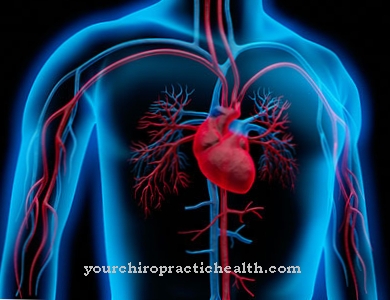


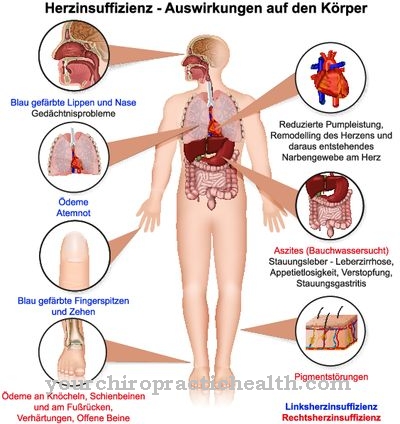

.jpg)

